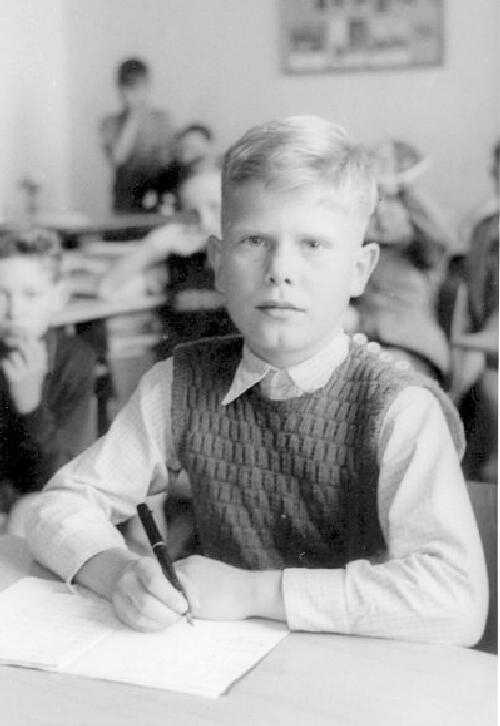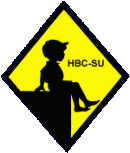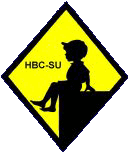
Figure 1.--Here we see a student in post-War Germany, probably about 1950. Note the buttons at the soulder of his sweater. probably hand knitted. Some of our German readers believe that educational standards have declined in Germany..

Germany in the early 20th century had perhaps the premier education system in the world. The system was eroded by the NAZIs during the Third Reich. Academic standards have continued to decline in the post-War era. There is currently a debate in Germany concening both educational philosophy and educational standards. Perhaps no other quality education system has had to adapt to such wide swings in educational philosophy as the German syste. Educarors have worked under a conservative monarchy, a liberal democracy, the Third Reich, foreign military occupation, Communism and today's uninted democratic Germany. Throughout all of this the state has been the center of German education. Private schools have never been as important in Germany as in Britain and America. Tooday there is a debate in Germany over educational philosophy. The same debate is being persued in America and other Western European countries, but there are some unique aspects to the German debate because of the unqiue German historical expeuence as well as social attitudes.
Germany in the early 20th century had perhaps the premier education system in the world. Part of the reason for this were high educational standards. Parents that vsalued education and insisted that their children seriously persue their studies along with well prepared and demanding teachers. Another factor was a selective system in which only a small proportion of students advanced beyond the primary level. Academic standards were eroded by the NAZIs during the Third Reich. Academic standards have continued to decline in the post-War era. There is currently a debate in Germany concening both educational philosophy and educational standards. German schools maintained high standards and this was a major factor in the couuntry becoming a center for science and industry. Until the NAZIs, German scientific institutions were some of the premier facilities in the world. German scientists until 1933 led the world in the number of Nobel prize winners. Major reforms were instituted in German eduxation during the post-War era. Up to recent reforms, for example, to study medicine and law at German universities one had to have some knowledge of Latin („das kleine Latinum“ at least, 3–5 years in school/gymnasium) to study these fields. It is difficult to compare academic achievement in different countries. One attempt to do so are the "PISA-Studies“. These assessments at the end of the 20th century show Germany is on the lower ranks, very low ranks in fact. PISA Studies comparing the reading abilities of 14/15 years olds show German children score very low. This has shocked the German public which had thought that German schools were some of the best in the world. A German reader writes, "Our politicians are now heavily discussing what the reason is, the teachers, the system, the parents, the pupils, ... They say always that the others are responsible, typical politicians – and they are not able to really change the system up from the basic mistakes in our present educational system made in the 70s and 80s by the socalled „Achtundsechziger“ (68er) who are now in the governments of the federal state and the German states. Thus I do not see any possibility of improvement in the near future."
Perhaps no other quality education system has had to adapt to such wide swings in educational philosophy as the German system. Educaters have worked under a conservative monarchy, a liberal democracy, the Third Reich, foreign military occupation, Communism and today's uninted democratic Germany. We are not fully sure at this time in the impact in these wide changes in social order, but we have begun to collect information on the different eras in German education.
Throughout all of this the state has been the center of German education. Private schools have never been as important in Germany as in Britain and America. We are not entirely sure why private schools have played such a limited role in German education. Hopefully our German readers will provide some insights here. One impact has been that German education has not been enriched by new approaches and outlooks that are often persued by private schools. It also means that Germans have had fewer educational options for their children. Affluent families could hire private teachers/tutors/mentors, „Privatlehrer“, a kind of home learning. This was accepted, but it was not generally organised.
German schools today are supported by both the state government anf the local communities. The communities, e.g., are responsible for providing school buildings; the states set the regulations and curricula. So there are a lot of differences among states in Germany. These differencess are the curriculum, the length of going to school for the "Abitur" (12 or 13 years), the examination requirements for the Abitur and other similar matters. Also, some states provide more teachers for a certain number of pupils, some communities build or renovate
school buildings with more money or provide better equipment/resources. And there are a lot of destinctive types of schools.
Private schools have not been as important in Germany as in some other countries, like America and England. This has in part been due to the excellent state schools and the high standards maintained there. There have, however, always been private schools. Many are associated with religious groups. In towns with about more than 100 000 population you usually will find a catholic Gymnasium. There are Waldorf-schools in the secondary level (not all leading to the Abitur), and there are in bigger cities also other private schools (in the city were I am living, 140 000 population, there is a third private secondary school by another religion group). While still relatively small, the private school sector is growing. This is in part because of the concern over declining standards in the state sector.
Tooday there is a debate in Germany over educational philosophy. The same debate is being persued in America and other Western European countries. The debate is especially interested in Germany. The Communists in East German at first implemented a radical educational reform based on idelogical beliefs. They backed off this approach. In today's modern democratic Germany there are teachers with rather ideologically based outlooks. There were not in principle many differences regarding education in German speaking countries (the German states, Austria, and Switzerland). This included Middle and Central Europe which were heavily influenced by Germany up to the beginning of the 20th century. This is in part because large areas of Eastern Europe was part of the German and Austrian Empires. There were no major educational reforms during the Weimar era. The German schools maintained very high standards, but continued a very selective system. The NAZIs did not trust the German educational establishment. Under the Third Reich more emphasis was placed on political reliability than academic standards in selecting teachers. (HBC's German readers agree with this statement, but there is a difference og opinion as to what extent this took place and on the impact on German educational standards.) Many excellent teachers left the profession. The German Democratic Republic in the beginning, suppressed families with an appropriate background, e.g., in music, where it is scientifically proven that the ability is inherited in families (see the Bach, Mozart and Strauß families as the most famous German/Austrian examples). All educated families were suppressed in the beginning, only children from working class families were allowed to attend higher education. Then, rather secretly, they did the same as the Soviets, selecting for sport, for music, for mathematics, for engineering etc. The „Bundesrepublik Deutschland“ (BRD) is commonly known as WEst Germany. German schools after the War developed a new educational system which extended secondary education to most German children rather than selected acadenically capable students.
Germany has influenced the schools in other countries. Many Japanese boys still wearing uniforms based on Prussian cadets. Girls wear, however, sailor suits--suggesting a British influence. Many American universities were founded after German models. Harvard, Yale, Princeton, etc. were based upon the patterns of the universities of Heidelberg and Göttingen.
While working class Germans for the most part did not advance their academic studies beyond primary school, Germany offered excellent trade and technical schools where boys who could not go to college could
receive training in all kinds of crafts. The goal was to get a diploma (Meisterprüfung) in whatever subject they learned. That's why German carpenters, butchers, bakers, plumbers, electricians, etc. know their trade and are sought after everywhere in the world. They usually stay in their profession and don't switch from being a mechanic to cabdriver or car salesman as is the case with many Americans who are not college-educated.
There are some unique aspects to the German debate because of the unqiue German historical experence as well as social attitudes. One of the most important here is the respect that Germans have for educators. German teachers thus have an authority and prestige that is often not shared by teachers in some other countries. Not only were teachers respected, but so was education itself. German parents attached great importance to their children's education. The first day of school was made a major event in a child's life. This is not always easy to convey to 6 years old children. All the attention and a huge gift cone helped to convince many children. The deference given to teachers and educatioinal authorities has had both positive and negative consequences. One impact is that the level of local community control over schools is much weaker than in America and Britain. A German reader writes, "This is now history! There is much control by the state and bad influence by the political and social environment of schools. Teachers, who have to have a university study in their respective fields, are mostly underpaid and not very motivated. A rather high politician in the German Govenment recently called them „faul“ (lazy), no more authority, respect and prestige. One much influencing result is the bad rating of German pupils in the recent socalled „Pisa Studies“ (there are other influences)."
German parents up to the end of World War I did not legally have to send their children to school. They could provide lessons ( Unterrichtspflicht ) for the children at home. The lessons could be given by the parents, relatives, private teachers etc. Thisc changed with the democratic Weimar convention. This established compuldsory ( Pflicht ) school attendance for the school time in German history. The constitution of Weimar of 1919 introduced the requirement that all children go to a school ( Schulpflicht ). It did not have to be a state school, but it had to ve a school with teachers educated in a state seminar – “Pädagogische Hochschule” ( now in most cases universiy teacher preoparation programs or confirmed by state regulation ). I believe this provision of the Weimar Constitution was a republican measure aimed at social integration. Most of the people schooled at home were wealthy people who hired tutors. It was considered a progressive measure to require rich, often aristocratic children to attendc schools with other German children.
Related Chronolgy Pages in the Boys' Historical Web Site
[Main Chronology Page]
[The 1880s]
[The 1930s]
[The 1940s]
[The 1950s]
[The 1960s]
[The 1970s]
[The 1980s]
Related Style Pages in the Boys' Historical Web Site
[Main school uniform page]
[Main country page]
[Long pants suits]
[Short pants suits]
[Socks]
[Eton suits]
[Jacket and trousers]
[Blazer
[School sandals]
Navigate the Boys' Historical Clothing Web Page
[Introduction]
[Activities]
[Biographies]
[Chronology]
[Clothing styles]
[Countries]
[Bibliographies]
[Contributions]
[FAQs]
[Glossaries]
[Satellite sites]
[Tools]
[Boys' Clothing Home]
